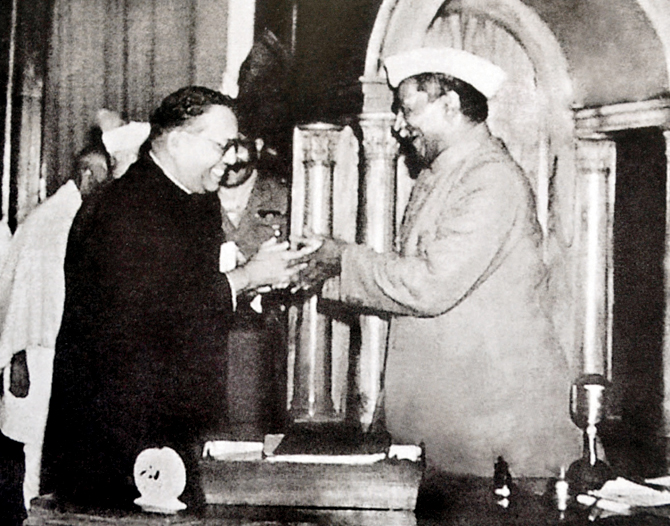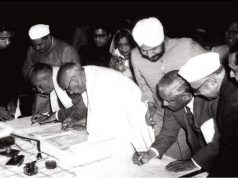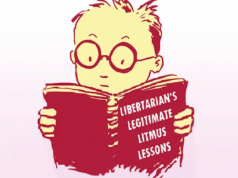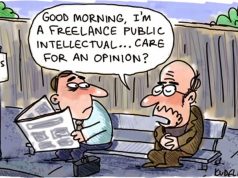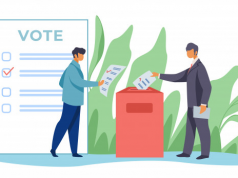Of late, Dr Ambedkar has emerged out of oblivion to reclaim a prominent space in India’s public life, and rightly so. As a political leader, social reformer, and author, Ambedkar interacted with a range of other leading figures of his times, all belonging to different ideology and political camps.
Produced below is a short article by the liberal politician Minoo Masani reminiscing his interactions with the Doctor. Masani had the chance to read Ambedkar’s work on Indian finance in his college days and was also examined by him. Next, they worked together in the Constituent Assembly. On the issue of Uniform Civil Code, Masani and Ambedkar were on the same page though their efforts didn’t come to fruition. Masani’s admiration for Ambedkar’s intellect and service to the nation is clearly reflected in the piece. To us, Masani’s recollection piece is a reflection of the shared pedigree of Indian liberalism which went on to shape the nation.
Recently Dr. B.R. Ambedkar’s 35th death anniversary was celebrated in Bombay with great eclat.
My path crossed Dr. Ambedkar’s at two stages of my life. One was when I was a student of economics at Elphinstone College and I read Dr. Ambedkar’s excellent book, “The Problem of the Rupee”. The book was both readable and sound. The Common Indian point of view based on the businessman’s interests was that the rupee should be pegged at 1 sh 4 d. I happened to agree with Dr. Ambedkar who took the other view espoused by the British Government that the rupee should be pegged at 1 sh 6 d.
When I appeared for the B.A. examination, my economics paper contained a question on this issue. I naturally wrote in favour of Dr. Ambedkar’s view on the subject. I did not know then that he would be the examiner. The result of this accident was that my paper was very well marked by him!
It was not till 1947 when I was a Member of the Constituent Assembly of India that I came across Dr. Ambedkar in person. He was a very active member of the Constituent Assembly and our Constitution owes a lot to his labours.
He and I were both members of the Advisory Committee on Fundamental Rights. There were several issues of a progressive nature when Dr. Ambedkar and I did not have our way. In the company of Mrs. Hansa Mehta, we therefore signed Minutes of Dissent to the official line. As far as I can recall two of the issues were a Common Civil Code and making free and compulsory primary education a fundamental right enforceable by law and not merely a Directive Principle as was the majority view.
Dr. K.M. Munshi refers to this in his book on the subject and describes us as the three idealists which I suppose we were. I am very proud that I was in the distinguished company of Mrs. Hansa Mehta and Dr. Ambedkar.
Published in the January-March, 1992 issue of the Freedom First magazine, the original text could be accessed here. (page 23)
IndianLiberals.in is an online library of all Indian liberal writings, lectures and other materials in English and other Indian regional languages. The material that has been collected so far contains liberal commentary dating from the early 19th century till the present. The portal helps preserve an often unknown but very rich Indian liberal tradition and explain the relevance of the writings in today’s context.
To read more about Minoo Masani, click here.
Post Disclaimer
The opinions expressed in this essay are those of the authors. They do not purport to reflect the opinions or views of CCS.

